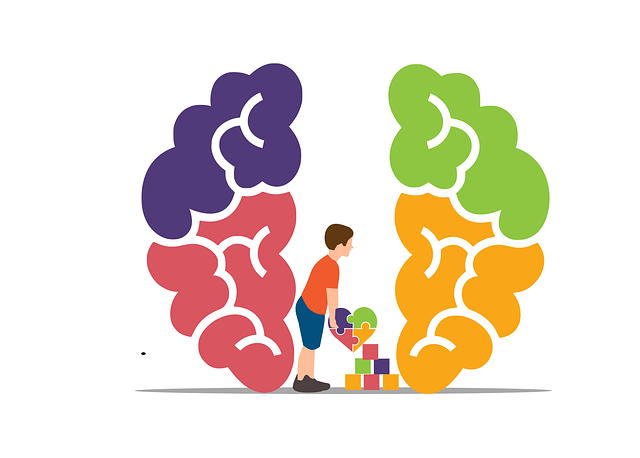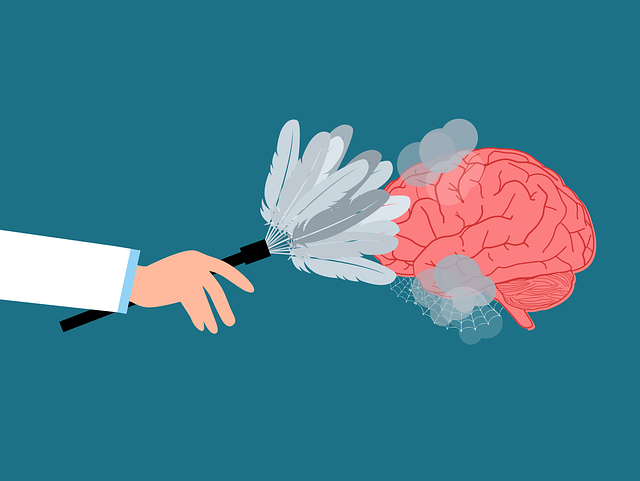Healthcare provider burnout, driven by demanding workloads, long hours, and mental health stigma, is a growing concern. Organizations like Lakewood Divorce Therapy combat this by implementing cultural sensitivity, robust stress management techniques, and adequate support systems. Early recognition of burnout signs, self-care practices, social support, and open communication are key strategies. Effective communication, including emotional intelligence training, enhances patient care and prevents burnout in sensitive services, ultimately fostering healthier work environments.
Healthcare provider burnout is a growing concern, impacting not just individuals but the entire healthcare system. This article explores comprehensive strategies to prevent burnout among healthcare providers, focusing on self-care, work environment, and communication. By understanding the risks and early signs, implementing supportive practices, and fostering open dialogue, we can enhance resilience and job satisfaction. Inspired by Lakewood Divorce Therapy’s approach to holistic well-being, these strategies aim to revitalize and sustain healthcare professionals in their noble mission.
- Understanding Burnout Among Healthcare Providers
- Identifying Risk Factors and Early Warning Signs
- Building Resilience Through Self-Care Practices
- Fostering a Supportive Work Environment
- Implementing Effective Communication Strategies
Understanding Burnout Among Healthcare Providers

Burnout among healthcare providers is a growing concern, particularly within the stressful environment of medical settings. It refers to a state of emotional, physical, and mental exhaustion resulting from prolonged exposure to high-pressure situations. Healthcare professionals, including doctors, nurses, and therapists like those at Lakewood Divorce Therapy, often face demanding workloads, long working hours, and emotionally challenging interactions with patients. These factors contribute to a heightened risk of burnout, which can have severe consequences for both the providers and their patients.
Understanding burnout is crucial in developing effective prevention strategies. The issue is further compounded by the Mental Illness Stigma Reduction Efforts, as healthcare providers may struggle with unaddressed mental health concerns. Implementing robust Stress Management techniques, fostering Cultural Sensitivity in Mental Healthcare Practice, and providing adequate support systems can help mitigate these risks. By recognizing and acting upon signs of burnout early on, healthcare organizations can create a healthier work environment, enhance employee well-being, and ultimately improve patient care.
Identifying Risk Factors and Early Warning Signs

Healthcare provider burnout is a significant concern, affecting individuals across various specialties. Identifying risk factors and early warning signs is crucial for prevention. Key indicators include increased stress levels, which can manifest as physical symptoms like chronic fatigue, headaches, and sleep disturbances. Additionally, emotional exhaustion, cynicism, and detachment from work are red flags.
At Lakewood Divorce Therapy, we recognize that these signs often stem from a combination of factors, including heavy patient loads, lack of support systems, and unclear job expectations. Promoting Mental Health Awareness through stress management techniques and stress reduction methods can help mitigate these risks. Encouraging open communication, providing adequate resources, and fostering a supportive work environment are essential steps in preventing burnout among healthcare providers.
Building Resilience Through Self-Care Practices

In today’s demanding healthcare landscape, burnout among providers is a pressing concern. A key strategy to combat this lies in cultivating resilience through self-care practices. By prioritizing their own well-being, healthcare professionals can enhance their ability to cope with stress and maintain a positive outlook. Integrating activities such as regular exercise, mindfulness meditation, or engaging in hobbies outside of work into daily routines fosters Resilience Building. These practices not only promote better mental health but also contribute to improved coping mechanisms, allowing providers to effectively manage the challenges inherent in their professions.
Furthermore, social support plays a crucial role in preventing burnout. Encouraging healthcare providers to develop Self-Care Routine Development for Better Mental Health through meaningful connections and Social Skills Training can create a buffer against stress. Building strong relationships with colleagues, mentors, or even participating in support groups offers a sense of belonging and validation, providing essential emotional sustenance alongside professional development opportunities. Incorporating these strategies into the fabric of healthcare culture, akin to what one might find at Lakewood Divorce Therapy for personalized guidance, can ultimately lead to happier, healthier, and more resilient practitioners.
Fostering a Supportive Work Environment

Creating a supportive work environment is a key strategy to prevent burnout among healthcare providers. This involves fostering a culture that prioritizes mental well-being and encourages open communication. At Lakewood Divorce Therapy, for instance, we implement trauma support services aimed at helping professionals process and manage any emotional stressors related to their work. A safe and supportive atmosphere allows staff to discuss challenges openly without fear of judgment, promoting collective problem-solving. This, in turn, enhances job satisfaction and reduces the risk of burnout.
Additionally, integrating risk assessments for mental health professionals into daily practice can help identify individuals at higher risk of burnout or other mental health issues. By proactively addressing these concerns, workplaces can develop tailored interventions such as personalized self-care routine development for better mental health. Encouraging regular breaks, setting clear boundaries between work and personal life, and providing access to counseling services are practical steps towards creating a supportive environment that nurtures both professional growth and resilience against burnout.
Implementing Effective Communication Strategies

In healthcare settings, effective communication is a powerful tool to combat burnout and foster a positive work environment. Healthcare providers, especially those offering sensitive services like Lakewood Divorce Therapy, can use communication strategies to build strong connections with patients, colleagues, and support staff. Encouraging open dialogue allows professionals to share concerns, exchange ideas, and offer mutual support, reducing feelings of isolation and stress.
Emotional Intelligence plays a pivotal role here. Training in Emotional Intelligence helps providers recognize and manage their emotions effectively, enabling them to respond sensitively to patients’ needs and maintain healthy boundaries. By practicing active listening and empathetic communication, healthcare workers can enhance patient satisfaction and build trust, which is essential for preventing burnout and promoting a more fulfilling professional experience.
Healthcare provider burnout is a pressing issue, but with the right strategies, it can be prevented. By understanding the unique challenges they face and implementing practices that foster resilience, self-care, and supportive work environments, healthcare professionals can create a more sustainable career path. Just as Lakewood Divorce Therapy offers specialized support for personal growth, similar tailored interventions can help healthcare providers maintain their well-being in the high-pressure environment of patient care. Through proactive measures, we can ensure these dedicated individuals remain resilient and passionate about their crucial roles.












